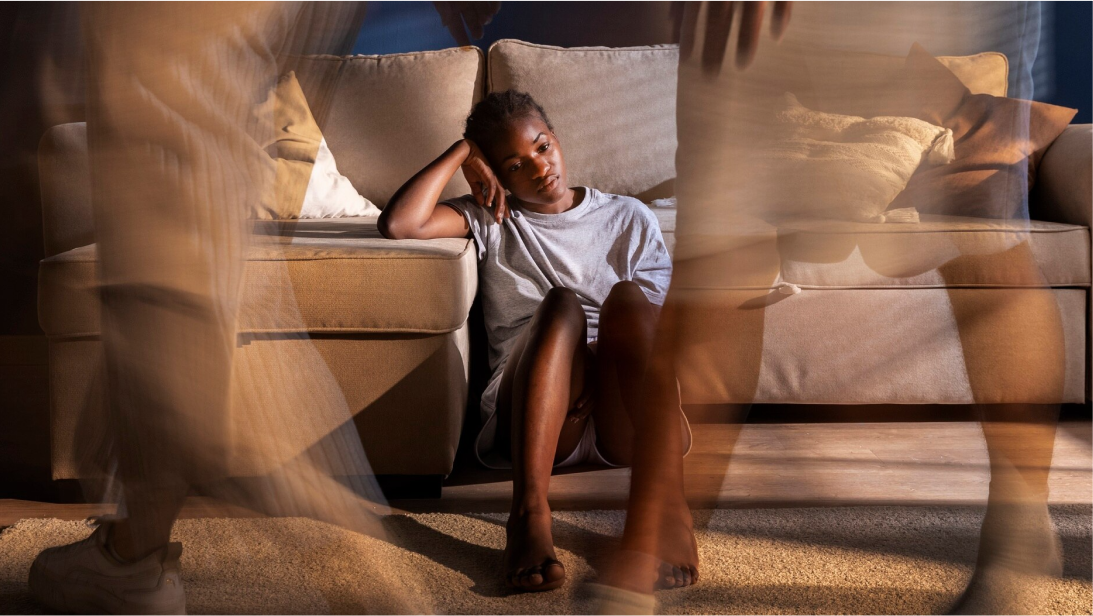
An apology often feels like a discrete act—a singular word, uttered and then left behind. Yet, what if we reimagined it, not as a momentary act, but as a dynamic process? A living, breathing element of a relationship, evolving over time rather than standing frozen in a singular exchange.
Sometimes, the most challenging part isn’t confessing to what you know you’ve done, but reckoning with harm you were blind to. What if, instead of a rote “sorry,” we approached apology as an act of self-awareness? A deliberate pause to say: I didn’t realize I hurt you, but I can see now—or am open to learning—how my actions caused harm. I commit to holding that awareness as we move forward, for the health and future of our relationship. This reframing shifts the apology away from a question of blame or vindication. It becomes less about the need to defend intentions or capitulate to every feeling and more about a commitment to the shared continuity of a connection. Relationships are intricate—always colored by the interplay of two unique perspectives. Even with good intentions, harm can be inflicted. An apology, then, becomes an act of acknowledgment: I see how my behavior affected you, or could have affected you, and may continue to affect you. I value this relationship enough to hold that in my awareness and act accordingly.
When mutual, this approach eliminates the fragile ground of walking on eggshells. It frees individuals from the defensive need to cling to their innocence, enabling a deeper accountability. It affirms that one can be “a good person” and yet still cause harm—because goodness does not prevent imperfection. In this way, an apology humbles us. It invites us to accept our fallibility and the reality that we are capable of wounding others, even unintentionally. But this humility is not a weakness. It is the foundation of relational strength. Through apology and forgiveness, trust can be rebuilt, self-awareness deepened, and the nuanced, messy beauty of human connection can continue to grow. Far from a simple conclusion, apology becomes a transformative practice—a way of saying, I value you and this relationship enough to learn and grow within it.
Seeing apology as a process also softens the “he said, she said” dynamic. It opens the door to understanding that both people’s experiences can coexist. Maybe I did something that hurt you, but maybe part of that pain also comes from your own story—your past, your insecurities, your expectations. And that’s okay.
This isn’t about dismissing someone’s feelings. It’s about recognizing that both people have work to do. Apologies aren’t just about preventing the other person from getting upset. They invite us to reflect on why certain things make us upset in the first place. This mindset could shift the whole dynamic. It protects us from feeling powerless in relationships. We stop waiting for the world to stop offending us and start paying attention to what offends us—and why. As the apologizer, I can acknowledge that I am not so perfect that I am beyond capable of causing harm without intending it. And it allows the person receiving the apology to engage in forgiveness, taking responsibility for something that they have perhaps been overlooking in their life.
An unhelpful idea we hold is that one person’s action = another person’s pain. While this may be the case sometimes, what if we assumed that, especially in relationships, both have a share of the responsibility?
The context, the history, the emotional stakes—they all shape what “sorry” looks like. If we agree that apology is a process—a living, breathing part of a relationship—then context becomes everything. Apology doesn’t exist in a vacuum. It carries the weight of history, patterns, and intention.
The same words, “I’m sorry,” can land completely differently depending on what’s behind them. If I’ve hurt you once, that apology might feel simple and clean. But if I’ve crossed that same line ten times before? Suddenly, the words don’t carry as much weight. Context asks bigger questions: How many times have I hurt you like this? Why does this keep happening? Am I even aware of my patterns—or am I just trying to stop long enough to avoid trouble?
The tricky part is that stopping behavior isn’t always the same as changing. Sometimes we get so focused on avoiding mistakes that we just get better at hiding them. We lie to others—and perhaps worse, to ourselves—because the goal becomes not getting caught, rather than understanding why we act the way we do.
Real growth comes from building awareness, not just control. Apologies become deeper when they’re rooted in self-reflection—when we’re willing to sit with uncomfortable truths and admit that we don’t know what we don’t know. That’s where so much harm comes from—the blind spots, the places we didn’t even realize could cause damage. This is the heart of relational self-awareness. It’s not about perfect behavior but about staying open—curious enough to recognize the patterns we haven’t yet unraveled. When apology is woven into this kind of self-work, it transforms from a hollow ritual into a meaningful part of how we care for others.
Now, let’s be real. Some things go far beyond this framework. Violence, deep betrayal, acts of terror—these are not the places where simple “self-awareness” ties things up neatly. I don’t pretend to know how an apology fits into the aftermath of unimaginable pain, such as losing a child to a school shooter. Maybe it does, eventually. Maybe it doesn’t.
But for the day-to-day hurts—the misunderstandings, the careless words, the accidental slights—apology can be something powerful. Not a ticket to avoid accountability but a quiet, steady way of staying awake in our relationships.
Apology, then, becomes less about fixing and more about staying connected, even in the messy, human moments. And maybe, just maybe, that’s enough to keep the thread from breaking.
